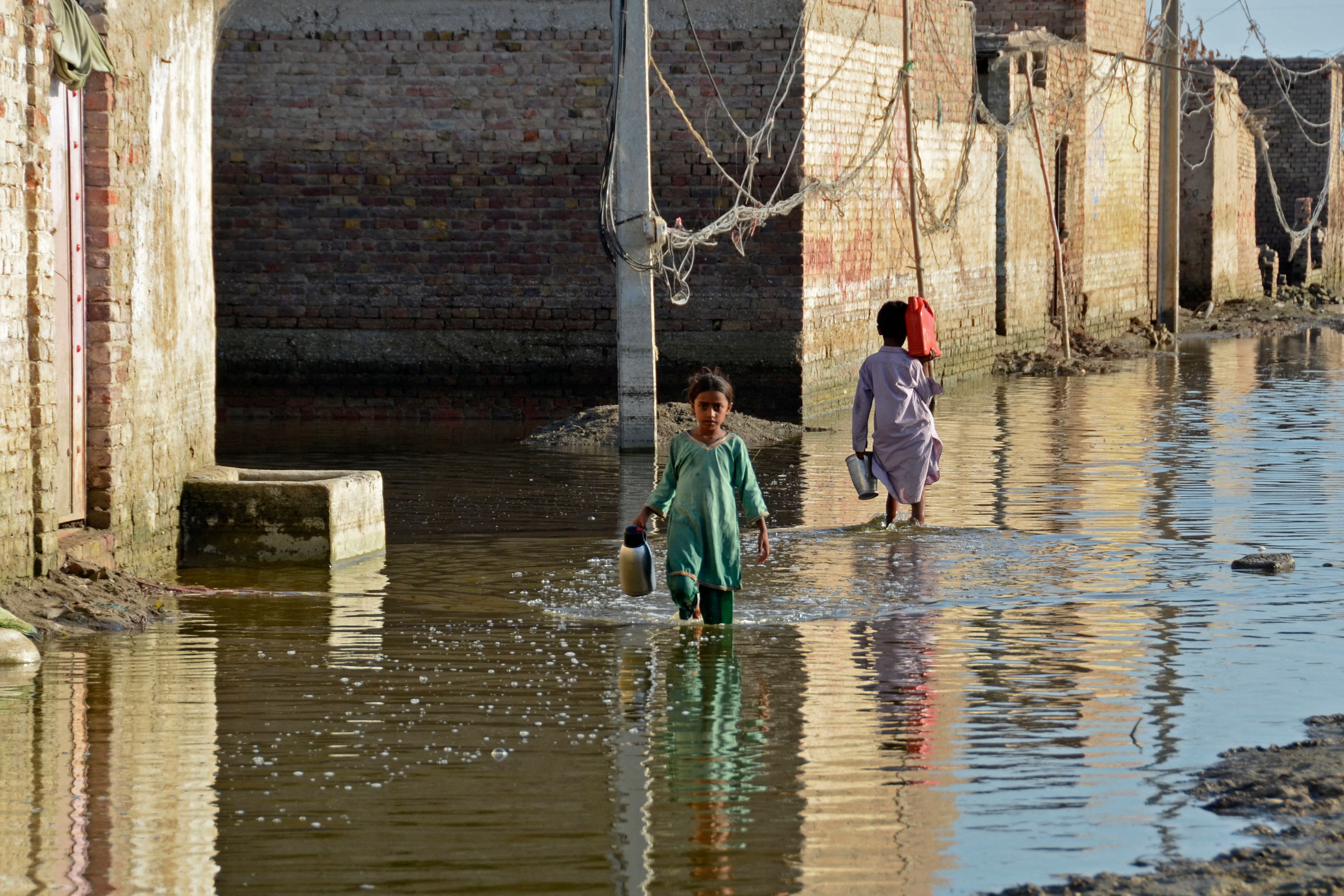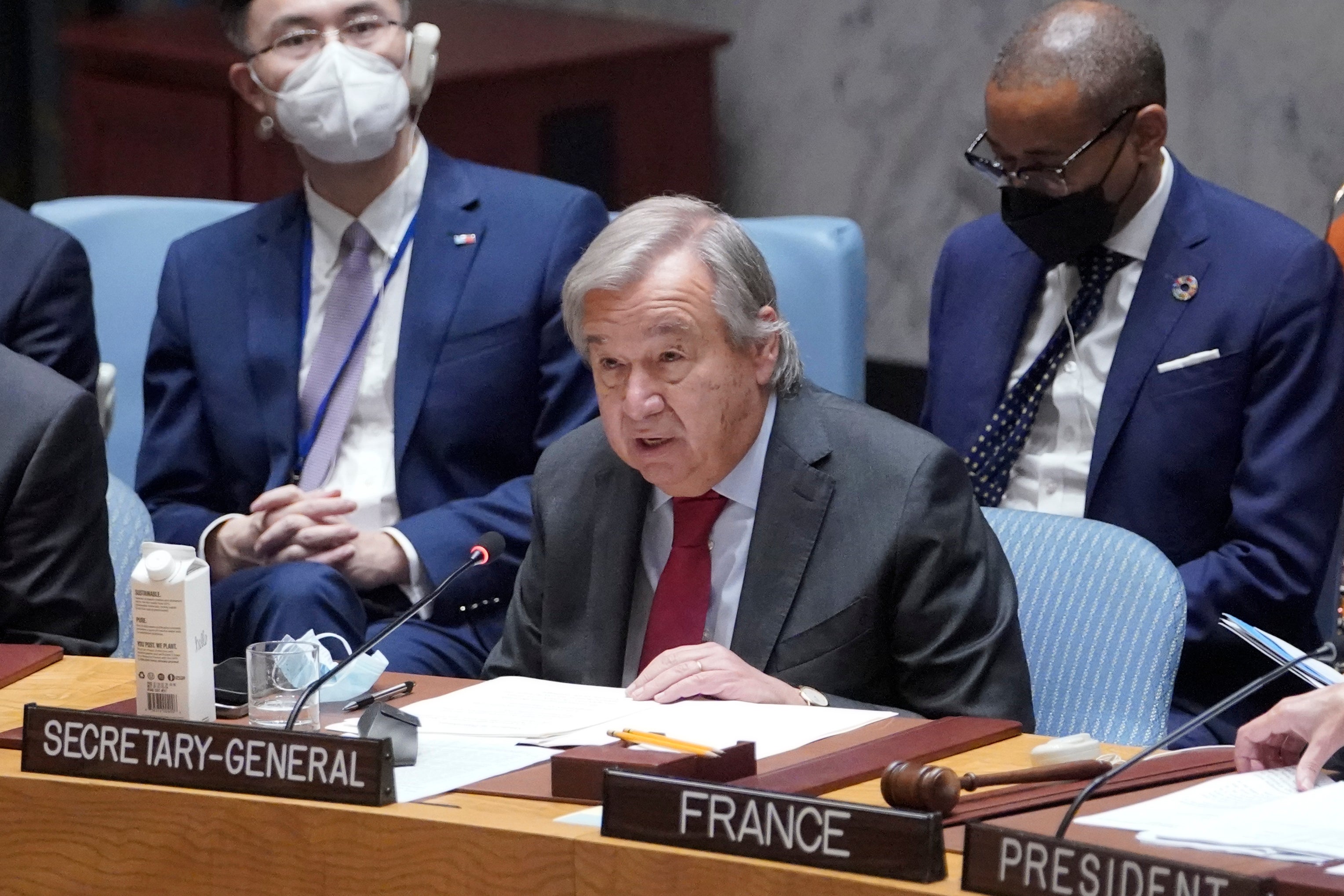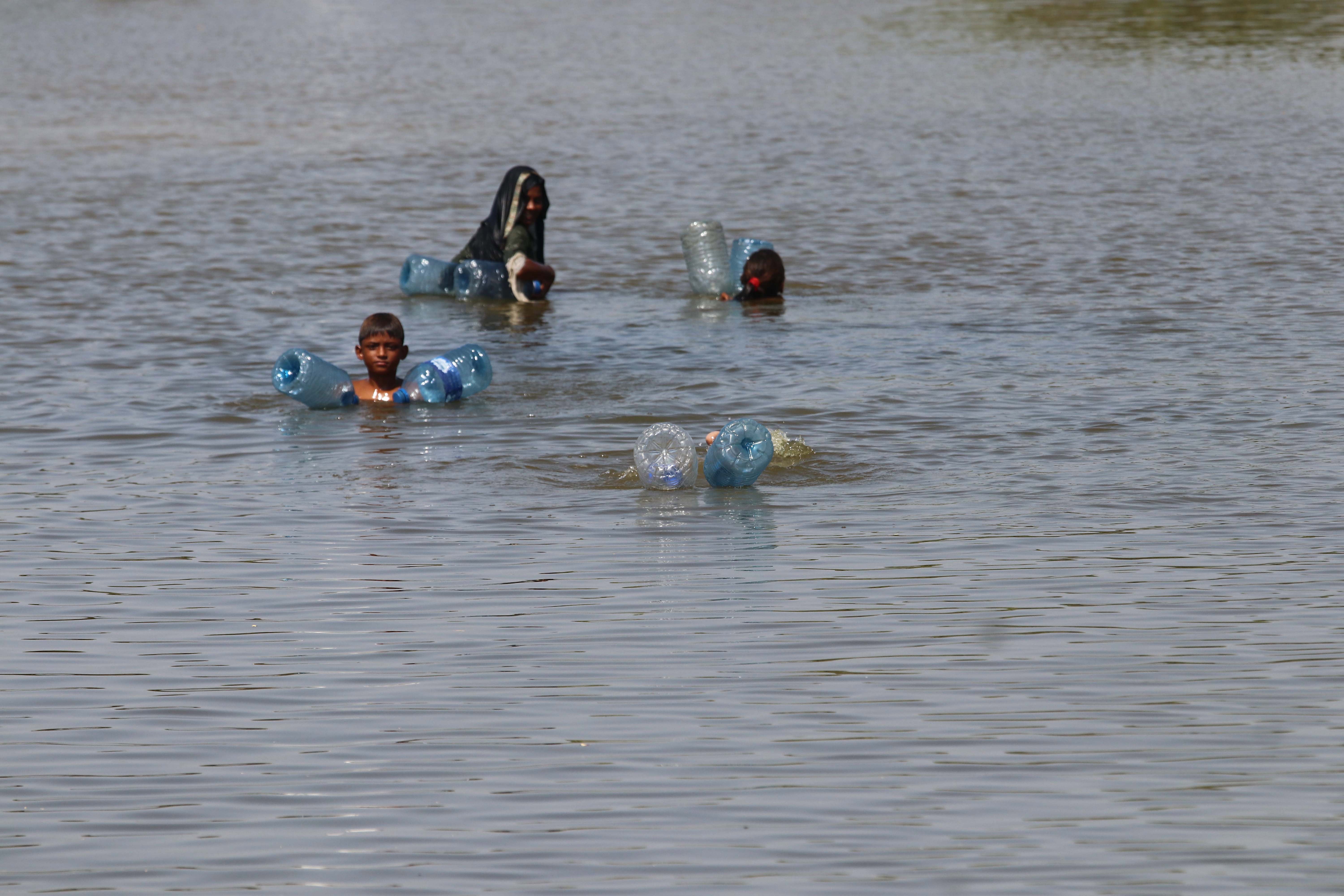Half the world ‘unprepared’ for climate-fueled extreme weather, UN warns
“Entire populations are being blindsided by cascading climate disasters without any means of prior alert,” says UN chief

Your support helps us to tell the story
From reproductive rights to climate change to Big Tech, The Independent is on the ground when the story is developing. Whether it's investigating the financials of Elon Musk's pro-Trump PAC or producing our latest documentary, 'The A Word', which shines a light on the American women fighting for reproductive rights, we know how important it is to parse out the facts from the messaging.
At such a critical moment in US history, we need reporters on the ground. Your donation allows us to keep sending journalists to speak to both sides of the story.
The Independent is trusted by Americans across the entire political spectrum. And unlike many other quality news outlets, we choose not to lock Americans out of our reporting and analysis with paywalls. We believe quality journalism should be available to everyone, paid for by those who can afford it.
Your support makes all the difference.The leader of the United Nations is calling for all countries to have early warning systems to protect people from climate-fuelled extreme weather as a new report finds half of all nations don’t have them.
“The world is failing to invest in protecting the lives and livelihoods of those on the front line,” UN Secretary-General Antonio Guterres said on Thursday in a video message. “Entire populations are being blindsided by cascading climate disasters without any means of prior alert.”
Mr Guterres said he will launch an action plan at the Cop 27 climate summit in Egypt next month to provide early warning systems for all countries within five years, and called on all governments, international financial institutions and civil society to support the plan.

The announcement coincided with a report by the United Nations Office for Disaster Risk Reduction and the World Meteorological Organization which found that those countries with limited early warning systems record eight times as many deaths during disasters than countries with better alert systems.
It found that less than half of the least developed countries and only one third of Small Island Developing States have multi-hazard early warning systems in place.
Early warning systems alert populations to extreme weather events such as storms, tsunamis, droughts and heatwaves, and have been proven to reduce harm to people and damage to assets.
Multi-hazard early warning systems - the ones that Mr Guterres wants rolled out in every nation - address several hazards that may happen alone or simultaneously or in sequence.
As the climate crisis fuels more frequent, extreme and unpredictable weather these early warning systems not only alert people to an initial event such as heavy rain, but also secondary threats such as landslides or disease.

The number of recorded disasters has increased by a factor of five, due in part to human-induced climate change, according to the World Meteorological Organization.
“People need adequate warning to prepare for extreme weather events,” said Mr Guterers. “Extreme weather events will happen. But they do not need to become deadly disasters.”
His remarks follow extreme flooding in Pakistan that put a third of the country under water, killed nearly 1,700 people and impacted 33 million.
Scientists have said the climate crisis fuelled the historic flooding by changing the pattern of the monsoon rainfall in South Asia - a region highly vulnerable to the consequences of a warming planet.
The death toll is expected to have been higher still had it not been for early warning systems.
Beyond the fact they save lines, early warning systems also provide a more than ten-fold return on investment, according to the 2019 Global Commission on Adaptation flagship report Adapt Now.
The United Nations said an action plan on how to increase global coverage of early warning systems will be presented at Cop 27.


Join our commenting forum
Join thought-provoking conversations, follow other Independent readers and see their replies
Comments